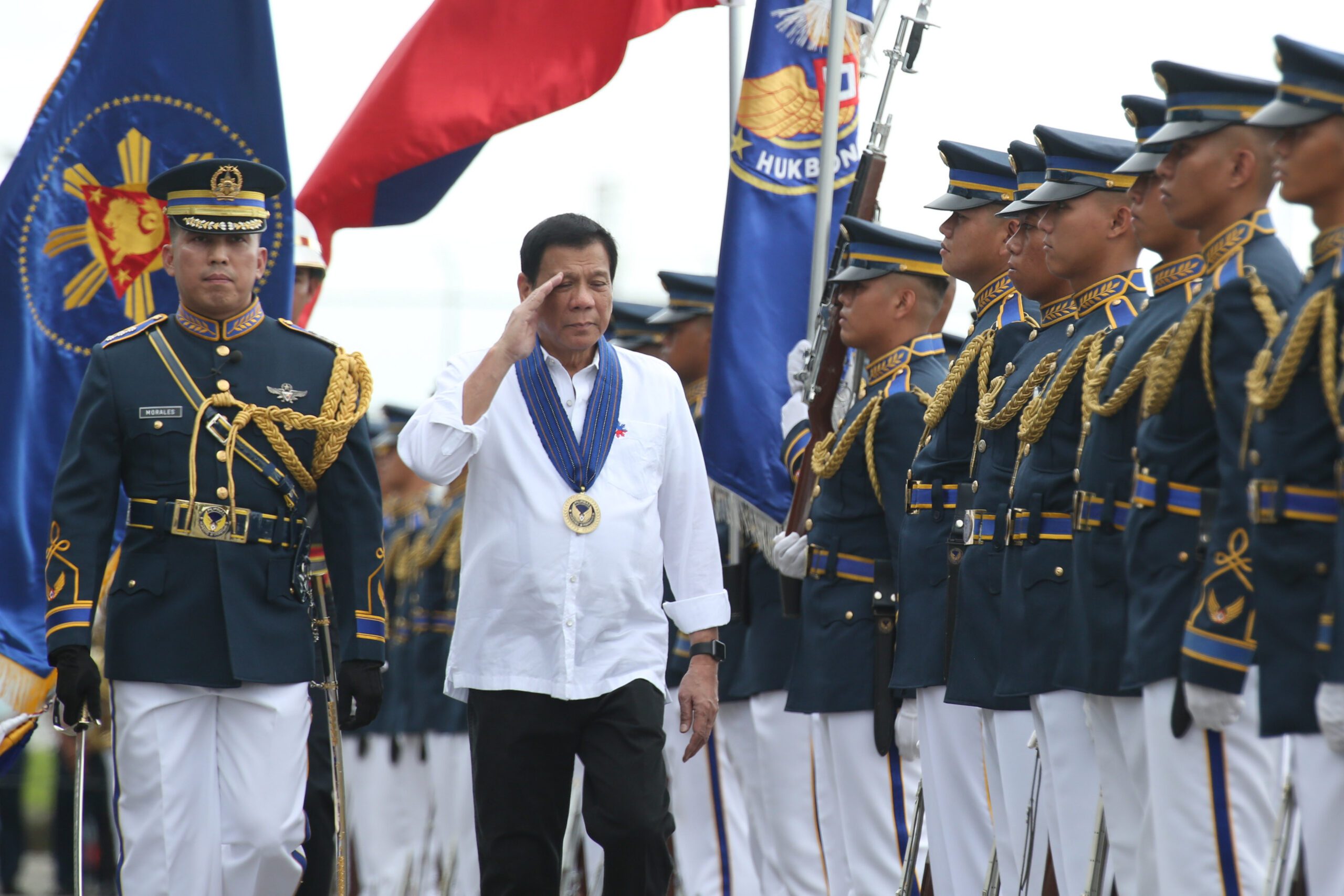SUMMARY
This is AI generated summarization, which may have errors. For context, always refer to the full article.

MANILA, Philippines – In order to fight urban terrorism, President Rodrigo Duterte will revive the Philippine Constabulary (PC) and put it under the command of the military.
“I will return the Philippine Constabulary under the 4 commands – army tapos Philippine Constabulary kasi kailangan ko ng tao sa urban terrorism like the SAF (Special Action Forces),” said Duterte on Tuesday, September 20, at a military camp in Mawab, Compostela Valley. (I will return the Philippine Constabulary under the 4 commands – army and the Philippine Constabulary because I need people in urban terrorism like the SAF.)
The President was apparently referring to the old set-up in the Armed Forces of the Philippines (AFP), when the PC was a major service command of the military along with the Philippine Army, Philippine Air Force, and the Philippine Navy.
The PC began as a police force of the American colonial government in 1901, and was eventually subsumed under the military.
As part of the military, the PC took care of peace and order concerns while the other services fought national rebel movements. The PC, for instance, took the lead in the implementation of martial law in 1972 through the arrest of activists, the takeover of key private establishments, traffic control, and even garbage collection.
No to ‘militarized police’
The 1987 Constitution that was crafted after the EDSA People Power Revolution, however, called for the creation of a national police force that is civilian in character. The sense was that the Philippines should do away with a “militarized police.”
Congress enacted a law to implement this constitutional mandate, giving birth in 1991 to the Philippine National Police – a merger of the PC with the Integrated National Police, the police force for cities and large towns.
This came a year before the former PC chief, retired general Fidel Ramos, won the presidency.
The transition has not been easy, as the PNP had to slowly let go of its military mindset, structure and training, to become an effective civilian police force. Its key leaders, for example, are still graduates of the Philippine Military Academy (PMA), such as the incumbent PNP chief, Director General Ronald dela Rosa, a 1986 graduate of the PMA.
But on Tuesday, Duterte said he needs the PC – essentially a police force under the AFP command – to suppress urban terrorism which he says is the next big threat the country faces.
To troops he said, “Most of all you, have to reinvent yourself from a soldier sa itong (in the face of this) terrorism. It will come,” he said.
He told the military to improve how they profile bombers or terrorists.
“Start to profile a bomber or a terrorist. Naka cap, naka shades, ang buhok fake toupee. Malikot ang mata ng terorista (They wear caps, shades, their hair is fake, is a toupee. The eyes of a terrorist move around.)” said the President.
To address terrorism, the Duterte administration has sent thousands of additional soldiers to Sulu, the stronghold of terrorist group Abu Sayyaf.
Following the deadly Davao City bombing, Duterte declared a state of national emergency on account of lawless violence. Through the declaration, Duterte ordered that more police and military be deployed in public areas, especially in Mindanao.
Duterte has warned that there will likely be more “explosions” in cities in Mindanao or other parts of the country.
He also said that some terrorist groups in Mindanao have pledged allegiance to the Islamis State of Iraq and Syria (ISIS). – Rappler.com
Add a comment
How does this make you feel?
There are no comments yet. Add your comment to start the conversation.